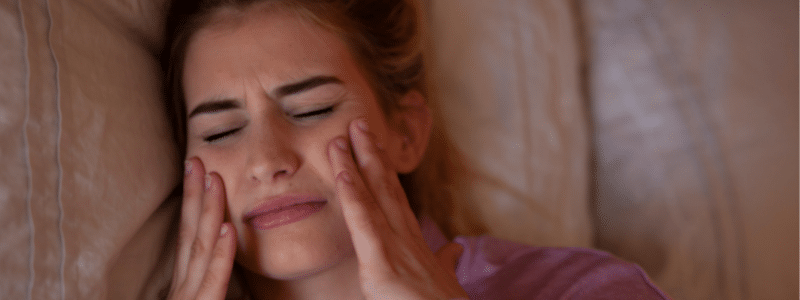
Bruxism, also known as grinding one’s teeth, is the action of gnashing or rubbing of the upper and lower teeth together usually during the nighttime, although some people will grind their teeth throughout the day as well.
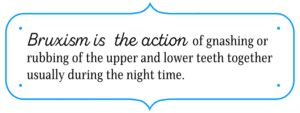 Bruxism is typically an unconscious or uncontrolled action that the person isn’t even aware they are doing. Mild grinding of your teeth can be annoying but not require treatment; however severe bruxism can eventually lead to jaw disorders, headaches, and damaged teeth as it can put up to 250 pounds of force on a person’s teeth and jaws.
Bruxism is typically an unconscious or uncontrolled action that the person isn’t even aware they are doing. Mild grinding of your teeth can be annoying but not require treatment; however severe bruxism can eventually lead to jaw disorders, headaches, and damaged teeth as it can put up to 250 pounds of force on a person’s teeth and jaws.
If you find you are waking up in the morning with a sore jaw or headache you should speak with an experienced dentist near you for possible bruxism treatment options.
Where grinding or bruxism is the rubbing together of your teeth throughout the night, clenching is the tightening of the jaw muscles without actually moving one’s jaws. Both actions can lead to discomfort or pain in the jaw muscles, but only bruxism will also damage the teeth.
Sleep teeth grinding is more common in children and adolescents, where it is estimated up to 50% of children grind their teeth while they sleep. This number drops to 15% when children hit adolescents and 3% in adulthood.
It is not fully known why some people grind or clench their teeth. For children it is thought that it has to do with their growth and development and related to their teeth coming in. Bruxism in adults however, is thought to be a condition related to stress, anxiety or other pathophysiological causes.
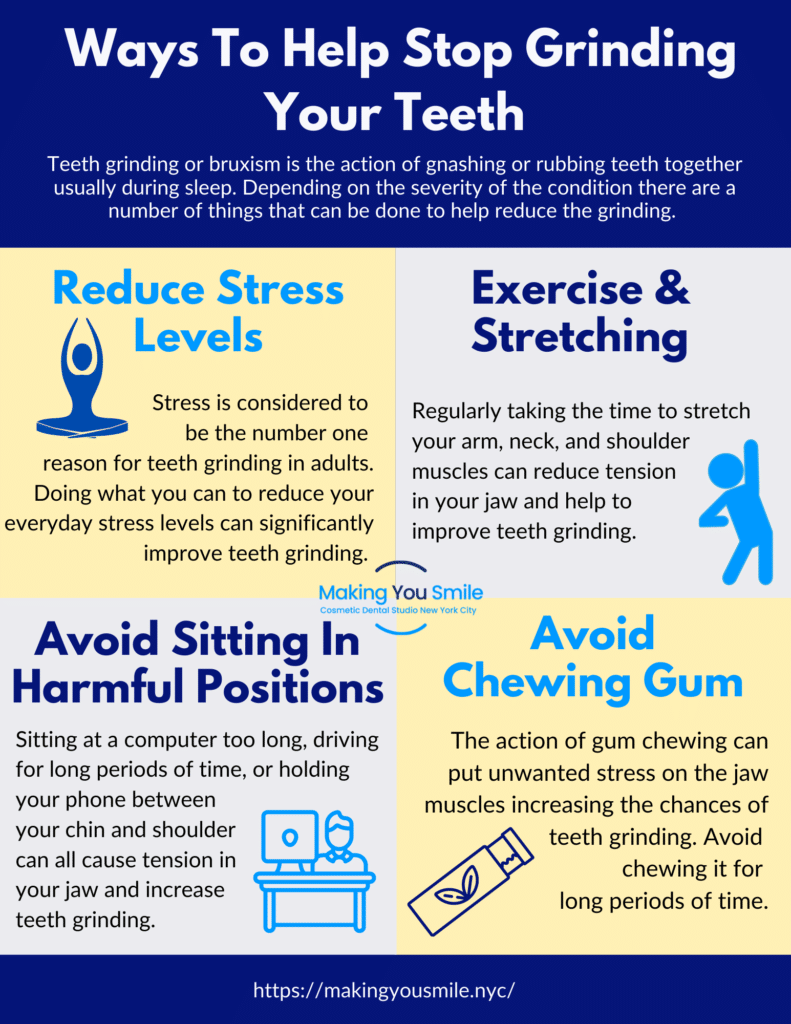 What Can I Do To Stop Grinding My Teeth?
What Can I Do To Stop Grinding My Teeth?Depending on the severity of the condition there are a number of things you can try to help reduce your teeth grinding.
If the grinding or clenching of your teeth is not associated with pain on chewing localized in front of the ear (TMD: temporo-mandibular disorder: a problem in the jaw articulation) there are many options to alleviate teeth grinding including:
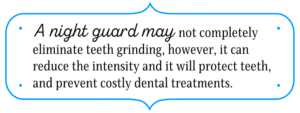 If the teeth grinding is creating noise during sleep (as reported by a family member or friend) or causing chipped/flattened/broken teeth as diagnosed by a local dentist near you then a nightguard may be helpful to prevent future harmful effects to your teeth. A night guard may not completely eliminate the teeth grinding, however, it can reduce the intensity and it will protect the teeth and prevent costly dental treatments.
If the teeth grinding is creating noise during sleep (as reported by a family member or friend) or causing chipped/flattened/broken teeth as diagnosed by a local dentist near you then a nightguard may be helpful to prevent future harmful effects to your teeth. A night guard may not completely eliminate the teeth grinding, however, it can reduce the intensity and it will protect the teeth and prevent costly dental treatments.
If the teeth grinding/clenching is associated with TMD and you are suffering from other symptoms such as headaches, migraines, shoulder or neck pain, then an evaluation by a TMJ specialist would be most beneficial to diagnose and treat the TMD together with the other symptoms comprehensively.
Many of the above suggestions for dealing with teeth grinding can still be implemented for more severe cases combined with more specialized occlusal splints finely adjusted to treat any potential articulation issues.
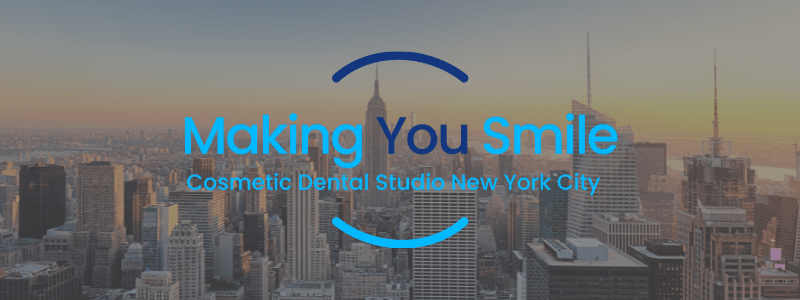
If you are concerned about bruxism and grinding your teeth and you live in Manhattan or anywhere in New York don’t hesitate to contact the office at Making You Smile Cosmetic Dental Studio for a treatment consultation today.